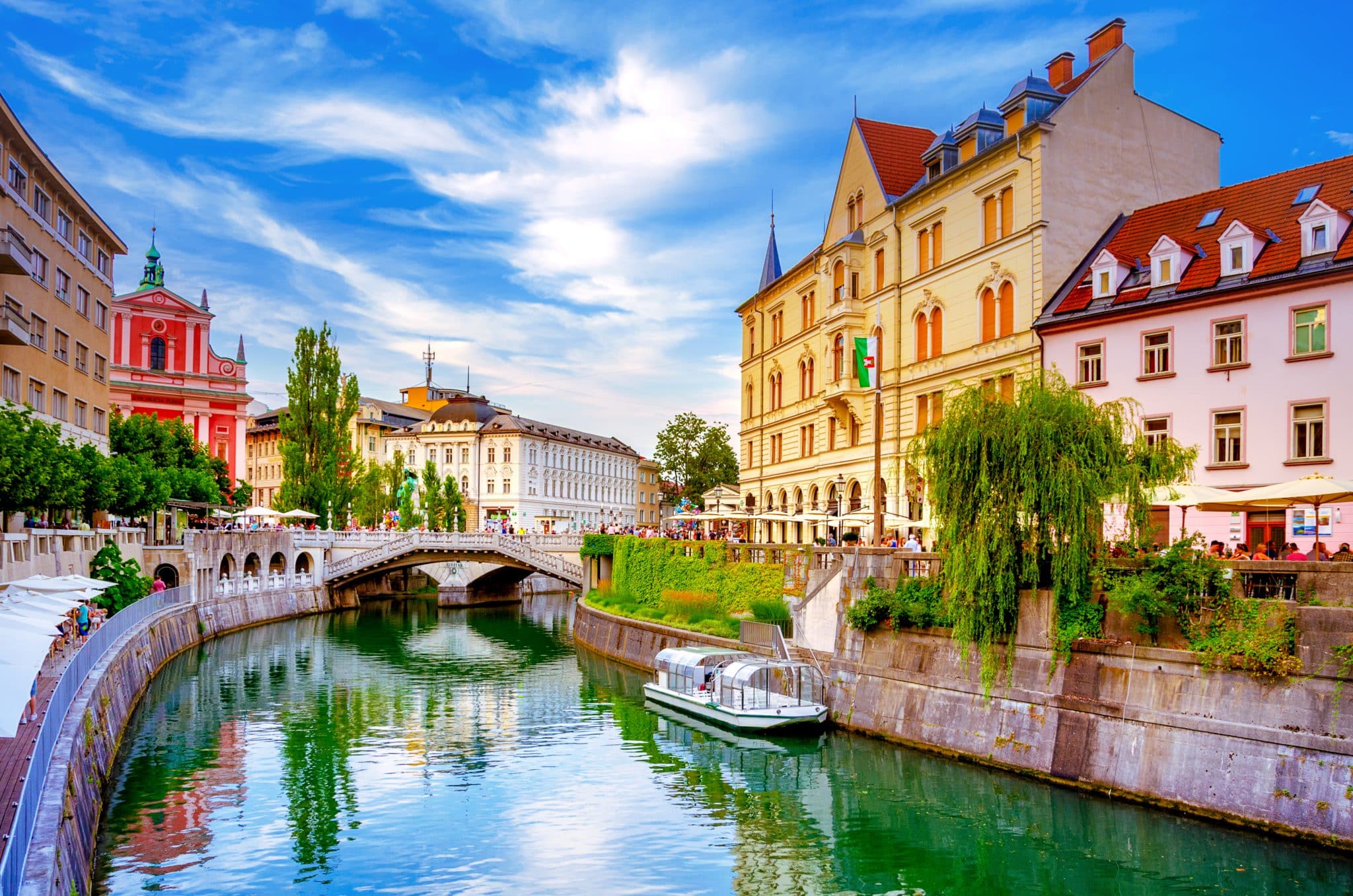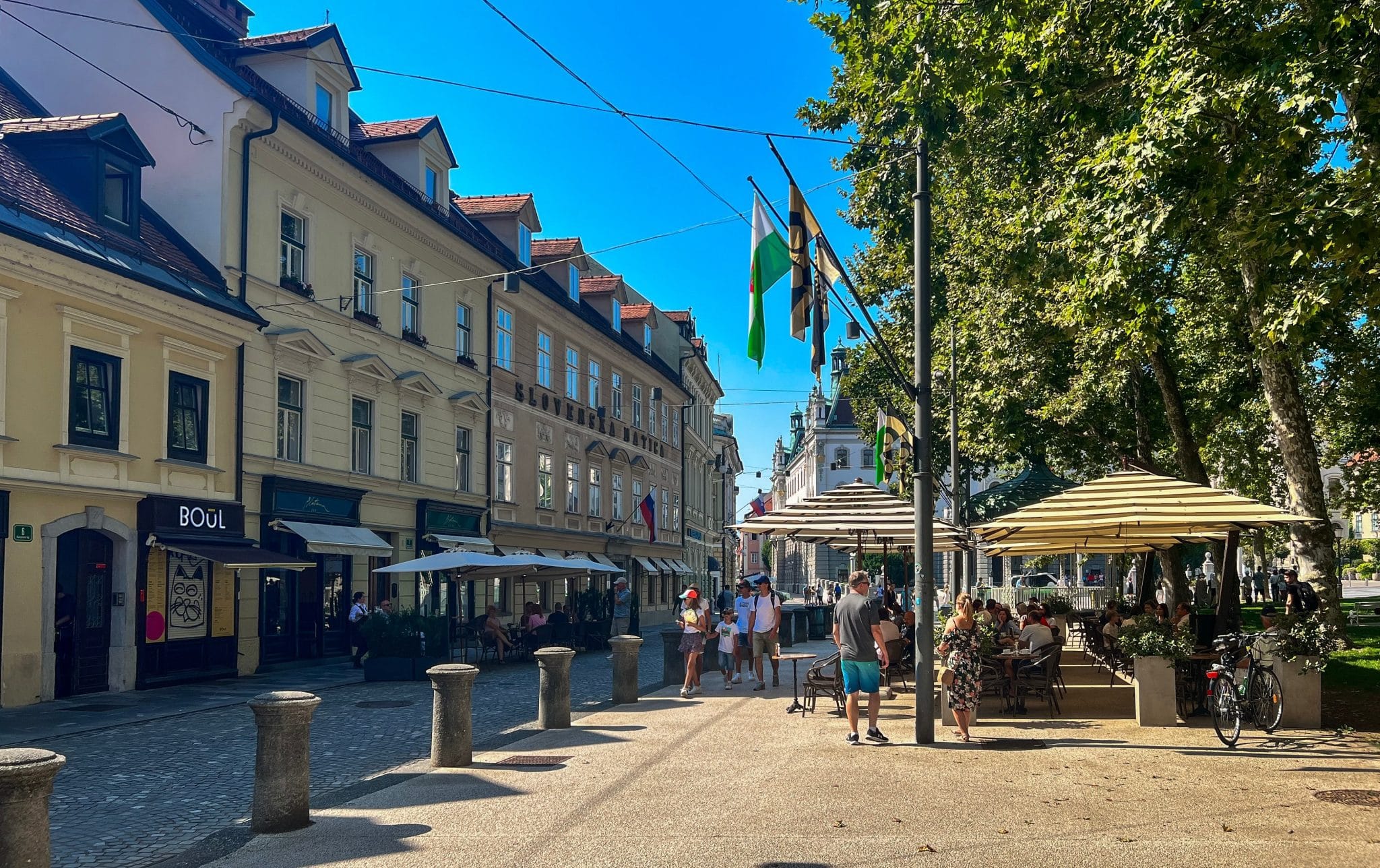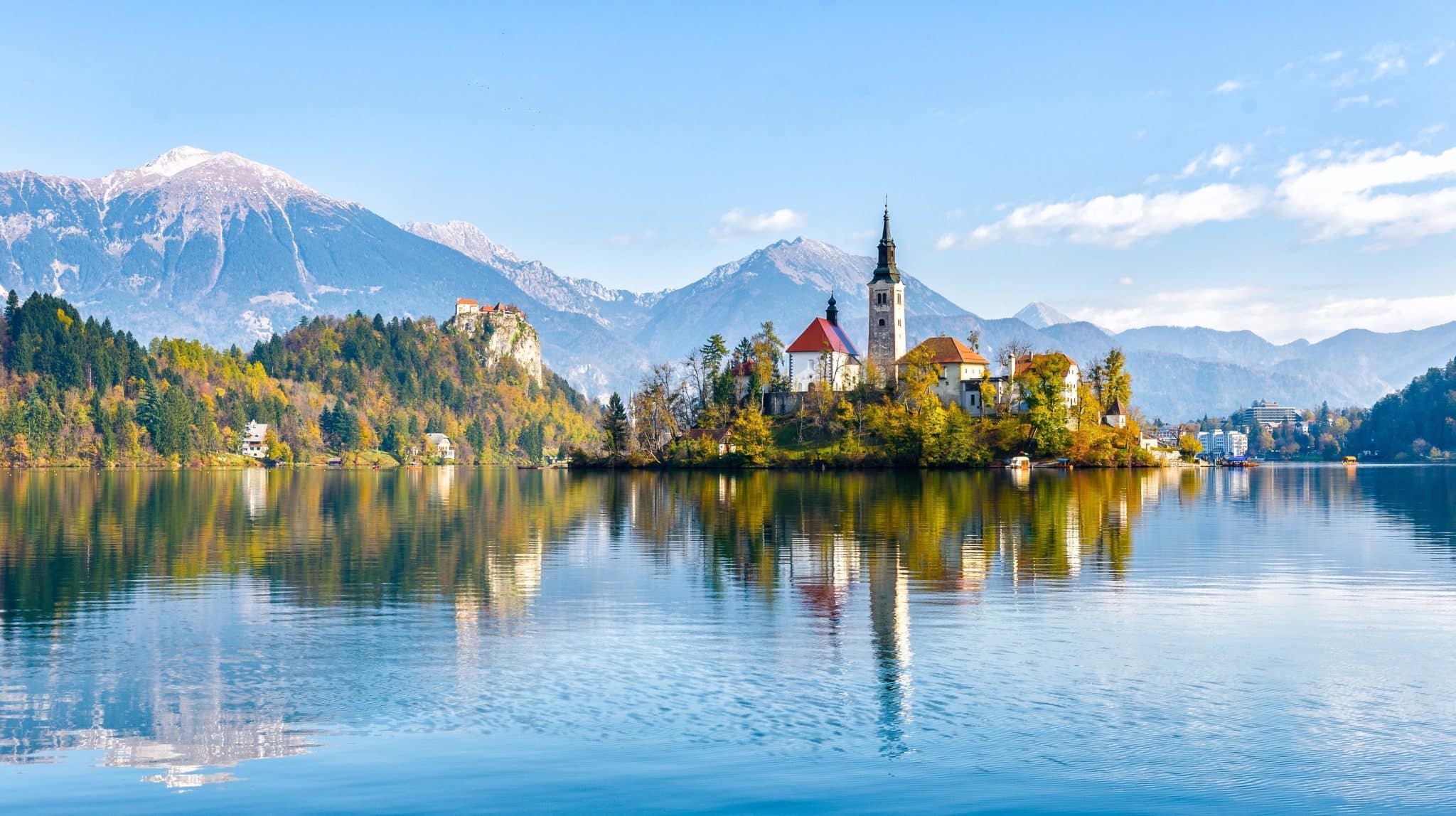Slovenia, steering towards a net-zero horizon
In The News
08 Oct 2024
Ljubljana, Kranj and Valenje are paving the way to climate neutrality through innovative, systemic approaches. The three Slovenian cities have partnered under the Pilot Cities Programme, to develop and test new solutions to their most pressing environmental challenges. As part of the EIT Climate-KIC-led NetZeroCities initiative, they have already started to share their developments and learning with one another. We met with Milan Dinevski, a member of Ljubjlana’s transition team and the Pilot Cities Project “UP-SCALE” manager to learn more about the city’s efforts.
Slovenia, a small yet vibrant gem nestled between the Alps and the Adriatic Sea, is a country where nature’s beauty and human ingenuity coexist harmoniously. Known for its lush forests, picturesque lakes and medieval towns, Slovenia is also a nation with a deep-rooted respect for the environment. Here, the drive to combat climate change is an integral part of its national identity.
The country has an ambitious climate strategy and is engaged in a myriad of activities in pursuit of climate neutrality. Ljubljana, the capital, has been striving to create greener urban environment for a number of years and in 2016 held the title of Europe’s Green Capital. In addition, the Slovenian government is participating in a EIT Climate-KIC-led Deep Demonstration programme to turn the whole economy circular through systemic innovation and radical collaboration. Given Slovenia’s activity in many climate initiatives, participating in the Pilot Cities Programme with their UP-SCALE Urban Pioneers – Systemic Change Amid Liveable Environments project was a natural next step to accelerate their transition to a net-zero world.
“Being part of a platform of like-minded cities that are aware and ambitious enough to tackle the challenges of climate change through innovative and coordinated efforts is of immense value to Ljubljana. It showed us that there are other cities with similar challenges and that we can exchange experiences to improve our actions,” says Milan Dinevski, an associate in the city’s Department of Environmental Protection.
Three cities, three challenges, one goal
As part of the Pilot Cities Programme, each city is focusing on different but complementary aspects of the green transition.
“In Slovenia, we have realised that we are all connected. and instead of tackling one problem at a time, the path to success lies in taking a more systemic approach and dealing with a range of interconnected challenges collaboratively. With a joint effort to complement each other in our challenges and with the support of the European Union, we can have a greater impact on decision-making at the national level and, at the same time, be a good example for other cities in the region,” says Dinevski.
The three cities have identified these critical areas that require immediate attention: energy retrofitting, sustainable mobility and renewable energy sources. Each city has taken the lead in one of these areas, creating a dynamic partnership that not only addresses local challenges but also aims to share solutions with others.
Kranj is pioneering sustainable mobility by developing a Mobility as a Service (MaaS) application to reduce car dependency. Velenje is focussing on energy retrofitting and replacing coal as an energy source with renewable energy, while Ljubljana is working on using excess (waste) energy potential and its possible use in the city’s district heating system. The capital city is also preparing for the connection of more renewable energy sources in the coming years.
“We all work together on solutions in three different areas. That way, we can learn from each other’s work and prepare to replicate it when it’s our city’s turn to improve in the other areas. The common denominator is the one-stop shops, where the involvement of different stakeholders is our priority and centre of attention,” – explains Dinevski.
The capital’s two-dimensional approach

Ljubljana’s participation in the Pilot Cities Programme has provided a unique platform to amplify efforts. This supports the city’s dual strategy, monitoring greenhouse gas emissions on the one hand, and engaging the public through the citizen engagement initiative called Innovation Hub on the other hand.
Regarding the technical approach, Ljubljana, together with the consultancy Envirodual d.o.o. is developing a digital tool to automatically monitor and report greenhouse gas emissions. This data will be added annually to the Energy Climate Atlas platform (a comprehensive national energy database at the local level), supported by the study on excess or waste heat potential.
“Networks of district heating systems (DHS) represent one of the most important infrastructures that enable decarbonisation through smart tools, as they allow the efficient integration of a wide range of renewable energy sources. As part of the Ljubljana pilot project, we are quite focused on exploring these potentials,” says Dinevski.
At the end of the pilot project, the digital tool will be available to public service employees, helping them make real-time, data-driven decisions for greener, more sustainable urban development.
A collaborative perspective on climate challenges

2465154609
At the heart of Ljubljana’s efforts is its Innovation Hub, which serves as a one-stop-shop for citizens and stakeholders to engage with the city’s climate initiatives. Located at the centre of the old town, the Hub aims to build a broad coalition of support for the climate goals and promote a culture of sustainability that permeates all sectors of society. This process is facilitated by workshops, lectures, consultations and numerous events.
“The Innovation Hub is more than just a venue — it’s a catalyst for change,” says Dinevski. “We bring together academia, NGOs, the private sector and citizens to co-create solutions that work for everyone. The main motivation is to change the mentality behind the green transition, meaning we need to change our habits while realising small and immediate personal and community benefits to achieve the goal of climate neutrality together. These changes do not have to be big or extreme — small steps will get us to the top rather than rushed action.”
The goal is not only to spark debate, but also to raise awareness and knowledge within local communities, ensuring the green transition is just and inclusive.
“We are looking for new ways to communicate the information from experts to citizens in all sectors that contribute to achieving climate neutrality, engaging different stakeholders in the conversation to discover innovative ways that work well for everyone,” says Dinevski, noting that interest in the Hub is growing and it has already attracted many stakeholders and sparked conversations about the importance of decarbonisation.
The idea of broad and radical collaboration in Ljubljana applies not only to external stakeholders and residents but also to the city administration hall itself. According to Dinevski, the municipality has already expanded the dialogue between the various departments that would carry out a green transition: “To become climate neutral, a broader understanding of the issue of climate change is needed to transform the mainstream development into a sustainable future. This takes coordinated efforts, including within the municipality.”
Ljubjlana is not the only Slovenian Pilot city to focus on collaboration and involve key stakeholders in its transformation. Kranj is developing a digital platform to reach and interact with its citizens and Velenje is setting up a Climate Energy Office to consult its citizens on the just energy transition.
Learning from others, leading by example

Ljubljana is keen to share its experiences wider and learn from other cities in the NetZeroCities programme. It sees value in the collective knowledge and innovative approaches being developed across Europe. “We are not alone in this,” emphasises Dinevski. “Being part of NetZeroCities gives us the confidence to be bold in our innovative actions.”
The city is also committed to ensure that the work started under the Pilot Cities Programme has a lasting impact. The GHG emissions monitoring tool will continue after the programme’s end, while the Innovation Hub will serve as a symbol of their commitment to a sustainable future and a place where citizens can come together to learn, share and innovate.
By blending technology, community engagement, and a steadfast commitment to environmental stewardship, Slovenia is showing that even small nations can lead the way in the global race to climate neutrality. The path ahead is long, but with bold actions and a shared vision, these cities are proving that a greener future is within reach.




